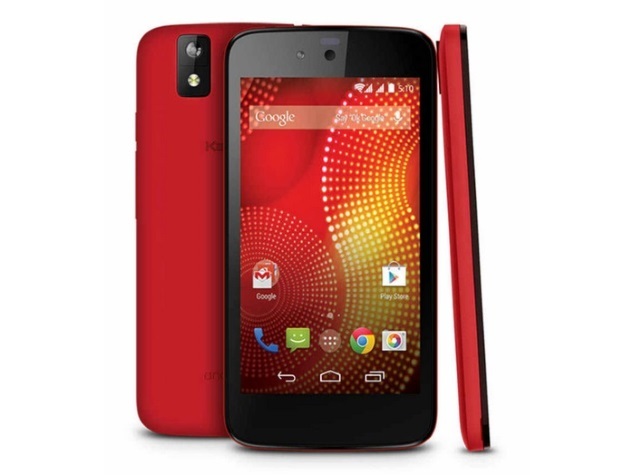As Google launched the Android One platform on Monday, Sundar Pichai Senior Vice President,
Android, Chrome and Apps at Google spoke exclusively to NDTV Group CEO
Vikram Chandra.
This is one of the biggest launches we've done anywhere, not just India,
Pichai told NDTV. "For us Android One was a journey to try and reach
the next 5 billion people. And India accounts for a substantial portion
of the share. Android One was conceived deeply with India in mind," he
said.
India is the first country that is getting Android
One smartphones. Android One is a reference design for low-cost Android
phones. The goal of the programme is to save upcoming brands time and
money spent in designing a low-cost phone. Google does this by giving
them a reference design, which the manufacturers can use to make
smartphones.
Pichai said he had been using an Android One device as his
primary phone and called it a "high-end computing device in every sense
of the term".
"With Android One we set the bar to be a great
software experience and a great device. We really want to bring in a
whole new set of people who have never tried a smartphone before," he
said.
On the similarities between the first Android One devices,
Pichai said, "The initial set of devices share common hardware because
they are based on the reference platform. You will see an increasing
range of devices as we expand this programme."
He said Android One
also makes it easier for manufacturers to build phones. "You can think
of Android One as a menu we provide to our partners and they can just pick
and choose the components they want and it's easier for them to build
the phone," Pichai said.
When asked about India-specific features
on Android, Pichai said YouTube will be available offline in the coming
weeks. He also mentioned that Android L will support as many as 7 Indian
languages. "With Android in the next version, the L version, we are
adding support for six Indic languages apart from Hindi. You're going to
see applications tailored to the Indian market over time. We're really
excited about that," he said.
(Also see: YouTube To Add
Offline Mode In India, Says Google)
Pichai
also spoke about Android's flexibility being a useful tool for
manufacturers. He said, "The unique thing about Android is that it is a
flexible platform. Micromax saw the need for dual-SIM in India and
solved it before anyone else. They did it on top of Android."
When
asked about competition from Apple, Pichai said, "Apple is very strong
in the high-end so we run into them a lot over there." However he said
Google's goal is to "build all kinds of phones for all kinds of people".
When
asked about the wearables space, Pichai said these are early days and
that those devices can have a huge impact on the health industry.
Regarding
India, Pichai said, "India has always had a lot of potential but I
think we've reached the tipping point where the potential is acually
here now. It's no longer a potential, it's a reality."
Android
One was announced back in June at Google I/O with only the above 3
launch partners, though more Indian companies have reportedly joined the
list since then.
Sundar Pichai told NDTV Gadgets
that the Mountain View-based company will not subsidise Android One
hardware. Instead, Pichai hoped that the by sharing resources between
Google and the OEMs, the companies would be able to keep the total cost
of manufacturing in check.
All 3 confirmed launch partners
(Karbonn, Micromax, and Spice) have confirmed their first Android One
smartphones will be available from 3:30pm IST via their exclusive
retailer partners on Monday itself, Spice and its retail partner
Flipkart have jumped the gun, and briefly listed the Spice Android One
Dream Uno on Saturday.

 Jio Working With Itel, Lava, and Nokia to Launch New Variants of JioBharat 4G Feature Phone: Report7 November 2023
Jio Working With Itel, Lava, and Nokia to Launch New Variants of JioBharat 4G Feature Phone: Report7 November 2023 Karbonn Frames S9 With Dual Selfie Cameras Launched in India: Price, Specifications9 May 2018
Karbonn Frames S9 With Dual Selfie Cameras Launched in India: Price, Specifications9 May 2018 Xiaomi Beat Samsung in Largest Smartphone Market in India in Q4 2017: CMR9 March 2018
Xiaomi Beat Samsung in Largest Smartphone Market in India in Q4 2017: CMR9 March 2018 Karbonn Titanium Jumbo 2 With Airtel Cashback Offer Launched in India: Price, Specifications16 February 2018
Karbonn Titanium Jumbo 2 With Airtel Cashback Offer Launched in India: Price, Specifications16 February 2018 Idea Offers Up to Rs. 2,000 Cashback on Karbonn Smartphones and Feature Phones30 January 2018
Idea Offers Up to Rs. 2,000 Cashback on Karbonn Smartphones and Feature Phones30 January 2018


![Gadgets 360 With Technical Guruji: News of the Week [March 29, 2025]](https://c.ndtvimg.com/2025-03/9cu1890s_news-of-the-week_160x120_29_March_25.jpg?downsize=180:*)










